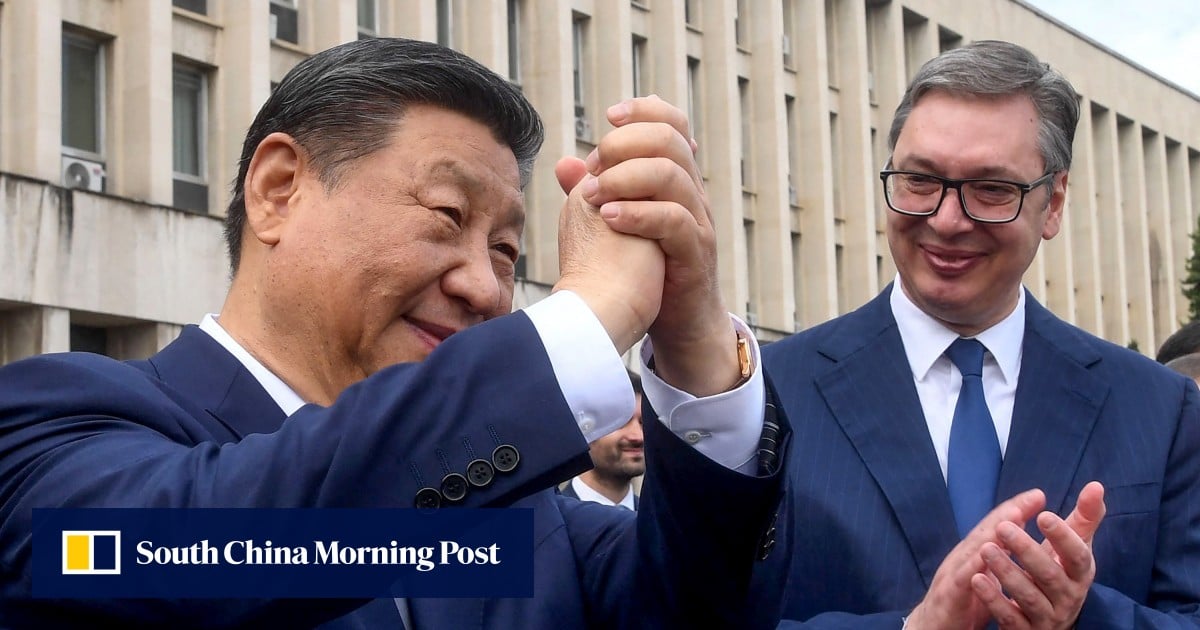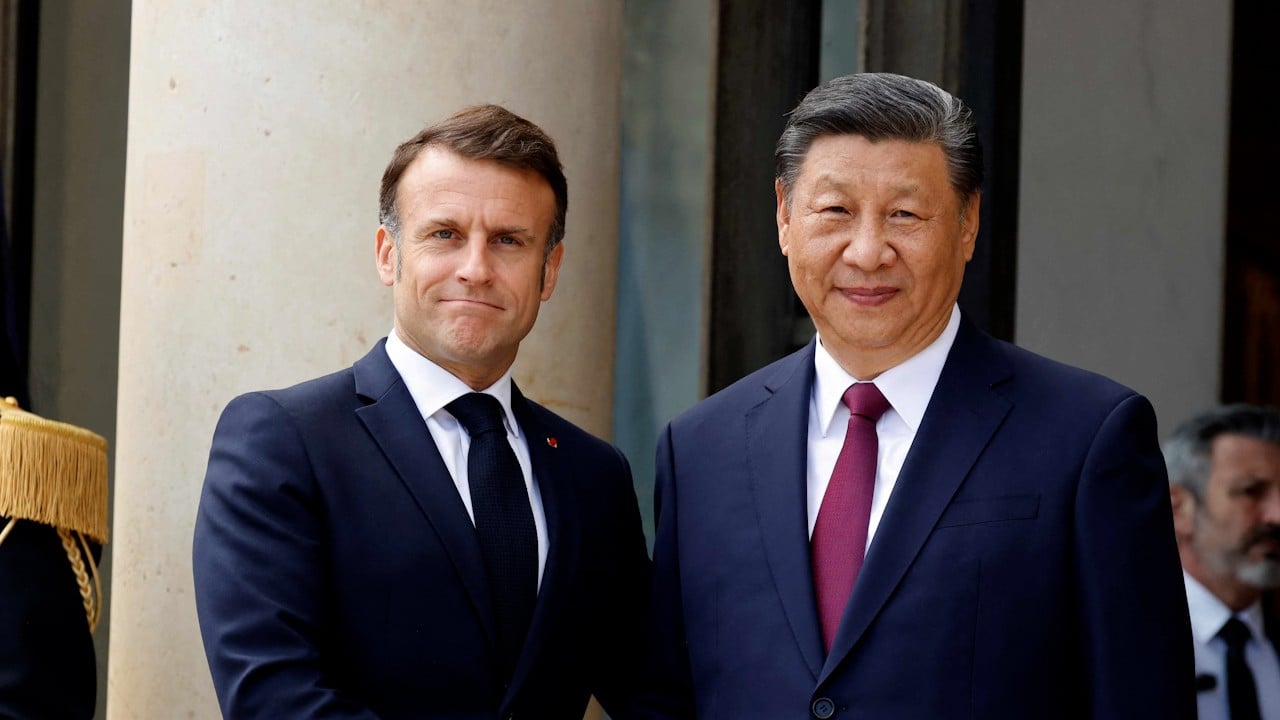The two leaders were greeted by a flag-waving crowd of around 20,000 people and shouts of “Serbia! China!” outside the Palace of Serbia, a major government complex in the centre of the capital.
Xi told Vucic that Beijing was ready to continue the “ironclad friendship” between the two countries, to jointly safeguard the fundamental and long-term interests of both countries, and to pursue their national development and national rejuvenation side by side, according to Chinese state broadcaster CCTV.
Later, Xi told a joint press conference: “We agreed to guide and steer the building of a China-Serbia community with a shared future for the new era through strengthening strategic communication.
Xi first announced his concept of a “community with a shared future” – which is often seen as a challenge to the existing US-led global order – over 10 years ago.
At its core is a vision of a new type of international relations and global governance characterised by mutual respect, common security and peaceful development.
“Eight years ago, Serbia became China’s first comprehensive strategic partner in the Central and Eastern European region, and today Serbia is the first European country to build a community of destiny with China, fully reflecting the strategic, special and high level of China-Serbia relations,” Xi added.
China, along with Russia and Serbia and dozens of other countries, does not recognise Kosovo’s 2008 declaration of independence.
In return, Serbia does not recognise Taiwan as independent, and Vucic told the press conference that his country supported the one-China principle and regarded the Taiwan question as an internal matter for China.

They also pledged mutual support on territorial issues when they met earlier in the day.
Xi said the two had also pledged to deepen their economic relations both in traditional areas of strength such as transport and energy infrastructure, while also extending it to cooperation on innovation.
He also said Beijing welcomed the move to open a direct flight route from Belgrade to Shanghai and backed plans for another route linking the Serbian capital and Guangzhou.
A free-trade agreement the two countries signed last year, which will grant Serbian companies access to the extensive Chinese market, is due to take effect at the start of July.
Vucic said the pact would “guarantee” the country’s future, adding that China’s previous experiences could provide a road map for Serbia’s future trajectory.
In 2022, China emerged as Serbia’s top source of foreign direct investment and the second-largest trading partner after the EU, according to Chinese state news agency Xinhua.
Trade between the two countries has risen from US$596 million in 2016 to US$4.35 billion last year.
In recent years, Beijing has poured substantial investment into Serbia, investing in numerous factories and mines, providing billions in loans to build roads and funding the development of a railway line between Belgrade and Budapest.
Xi’s arrival in Belgrade on Tuesday, following his two-day visit to France, coincided with the 25th anniversary of the 1999 bombing of the Chinese embassy in Belgrade during Nato’s Kosovo campaign.
The US apologised for the incident, insisting it was a mistake that was caused by using outdated maps, but it continues to be a sore point in China.
Xi skipped a visit to the site of the former Chinese embassy in Belgrade, even though this was expected to be on his itinerary.
There were no road closures or significant increase of security at the site of the former Chinese embassy on Wednesday, except for a few police officers placed along the nearby roads as the downtown Belgrade area was saved for Xi’s visit.
A Chinese tour group visited the site around mid-afternoon.
Another group of overseas Chinese, wearing red caps, began a vigil-of-sorts at the site on Tuesday but their numbers dwindled as Xi’s departure drew closer on Wednesday.
A young Chinese couple working in Belgrade waited at the site at noon, expecting to see Xi or his wife Peng Liyuan, but left around 1 pm after waiting for more than an hour.
The Chinese Cultural Centre, built on the site, also showed no sign of a ribbon-cutting ceremony, with only an electronic screen in the reception area of its office building showing a poster reading “warmly welcome President Xi’s visit to Serbia” and some local Chinese-language newspapers reporting on Xi’s European tour on a desk.
Flowers laid on the monument for victims were presented by Chinese state-own companies operating in Serbia, including Shandong Hi-Speed which invested for the Chinese Cultural Center, and China Energy Engineering Corporation.
In an opinion piece published in Serbia’s oldest daily newspaper Politika on Tuesday, Xi wrote: “The Chinese people cherish peace, but we will never allow such tragic history to repeat itself.
“The China-Serbia friendship, forged with the blood of our compatriots, will stay in the collective memory of the Chinese and Serbian peoples, and will inspire us to take significant strides forward together.”
Xi was due to travel to Hungary, the final leg of his European tour, later on Wednesday before returning to China on Friday.


